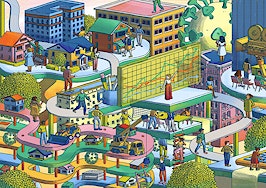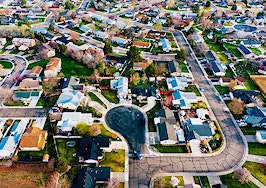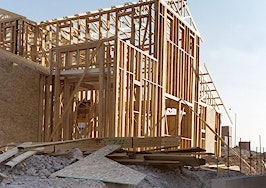It was just a year ago — February 2021 — that a national trade group estimated that more than 50 million U.S. households could afford to buy a newly built home.
Now that number has plummeted to 39 million.
The numbers are from the National Association of Home Builders’ latest “priced out” report, which states that 69 percent of U.S. households cannot afford a median-priced new home in their area. A year ago, a new home purchase was out of reach for 60 percent of U.S. households.
The number of households priced out of the new-build market in the past year amounts to nearly 1 in 10 in the U.S., and roughly a quarter of the share that could afford a new home the previous year.
Prices for new homes have increased substantially over the past year as builders continue to navigate high demand from buyers as well as supply-chain issues making the prices of lumber, brick and other construction materials highly volatile.
The rise of mortgage rates in the latter half of the year also played a pivotal role in the affordability of a new home.
“If mortgage interest [rates] increase, the monthly mortgage payments will rise as well, and therefore higher household income thresholds are needed to qualify for a mortgage loan,” wrote NAHB Senior Economist Na Zhao, who put together the report.
To determine affordability, NAHB assumed borrowers would obtain a loan with a 3.5 percent interest rate while putting 10 percent down on the home. Last year, its interest rate assumption was 2.8 percent.
If the total mortgage payment for a new home — including principal, interest, taxes and insurance — exceeded 28 percent of a household’s gross income, NAHB considered that household “priced out.”
If new home prices were to rise by $1,000, the report estimates that nearly 118,000 additional households would be priced out. “These 117,932 households would qualify for the mortgage before the price increase, but not afterward,” the report said.
Last year, a $1,000 increase would have priced out nearly 154,000 households.
But for those in the even lower income tiers, a lot would have to change for them to qualify for a loan on a newly built home.
“Housing affordability is a great concern for households with annual income at the lower end of the distribution,” the report concludes.









